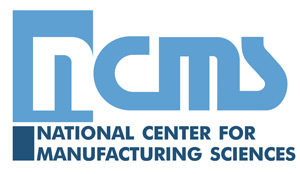LIFT Releases Report Highlighting Four Critical Imperatives Universities Must Take to Improve Engineering Work-And-Learn Models
DETROIT – LIFT – Lightweight Innovations For Tomorrow, a Manufacturing USA institute, today announced the release of “Engineering Work-and-Learn: Imperatives for Innovation,” a report aimed to support universities work in better preparing engineering students for the workplace.
The report captures four key imperatives for university faculty, administrators, and industry partners to innovate work-and-learn models to better prepare engineering students for work in industry. The four imperatives are:
- Engineering graduates should have a deeper understanding of how their role intersects with other processes and individuals in the workplace.
- All engineering students should participate in high-quality and innovative work-and-learn experiences during their undergraduate and graduate programs.
- Engineering curriculum must be responsive to evolving industry needs, including the needs of small, medium, and large employers.
- Work-and-learn models should be more widely implemented in university engineering programs and not reliant on a small group of ‘champion’ professors or administrators.
The report also presents recommendations for addressing these imperatives along with case studies on innovative practices from promising work-and-learn programs from around the country.
In June 2018, nearly 50 representatives of university engineering programs and industry gathered in Washington, D.C. for a workshop organized by LIFT, APLU, and NCMS, in partnership with Manufacturing USA. The workshop was focused on advancing university engineering and manufacturing education. and was entitled, “The New, Innovative, and Re-Imagined World of Employer-Engaged ‘Work-and-Learn.’” Participants united around their belief that industry and educators need to work together to increase opportunities for engineering students to gain real-world work experience.
“Only by convening all of the parties involved can we truly align the needs of the manufacturing base with the competencies students are developing in their programs of study,” said Emily DeRocco, vice president, education and workforce development, LIFT. “As a national innovation institute, we have a responsibility to bring industry and educators together to not only develop, but also implement the strategies needed to ensure our graduates are ready to work in today’s advanced manufacturing industry environment.”
The workshop was part of the initiative to form and deploy LIFT’s Expert Educator Team (EET), also supported by APLU and NCMS, which has published three reports of recommendations on how colleges and universities can modify current curricula to reflect the knowledge and skills necessary for jobs encompassing the new lightweighting technologies, materials, and processes being developed at LIFT. Those reports and more information on the EET can be found here: www.lift.technology/eet.
About NCMS
The National Center for Manufacturing Sciences (NCMS) is a cross-industry technology development consortium, dedicated to improving the competitiveness and strength of the U.S. industrial base. As a member-based organization, it leverages its network of industry, government, and academia to develop, demonstrate, and transition innovative technologies efficiently, with less risk and lower cost. For more information on NCMS, visit www.ncms.org
ABOUT LIFT
LIFT, operated by the American Lightweight Materials Manufacturing Innovation Institute (ALMMII), is a Detroit-based, public-private partnership committed to the development and deployment of advanced lightweight metal manufacturing technologies, and implementing education and training initiatives to better prepare the workforce today and in the future. LIFT is one of the founding institutes of Manufacturing USA and is funded in part by the Department of Defense with management through the Office of Naval Research. Visit www.lift.technology, follow on Twitter @NewsFromLIFT or on LinkedIn at https://www.linkedin.com/company/lift—lightweight-innovations-for-tomorrow/ to learn more.
Media Contact:
LIFT Joe Steele, jsteele@lift.technology 313-309-9132
ABOUT APLU
APLU is a research, policy, and advocacy organization dedicated to strengthening and advancing the work of public universities in the U.S., Canada, and Mexico. With a membership of 237 public research universities, land-grant institutions, state university systems, and affiliated organizations, APLU’s agenda is built on the three pillars of increasing degree completion and academic success, advancing scientific research, and expanding engagement. Annually, member campuses enroll 4.8 million undergraduates and 1.3 million graduate students, award 1.3 million degrees, employ 1.3 million faculty and staff, and conduct $44.9 billion in university-based research.
Media Contact:
Jeff Lieberson, jleiberson@aplu.org, 202-478-6073
